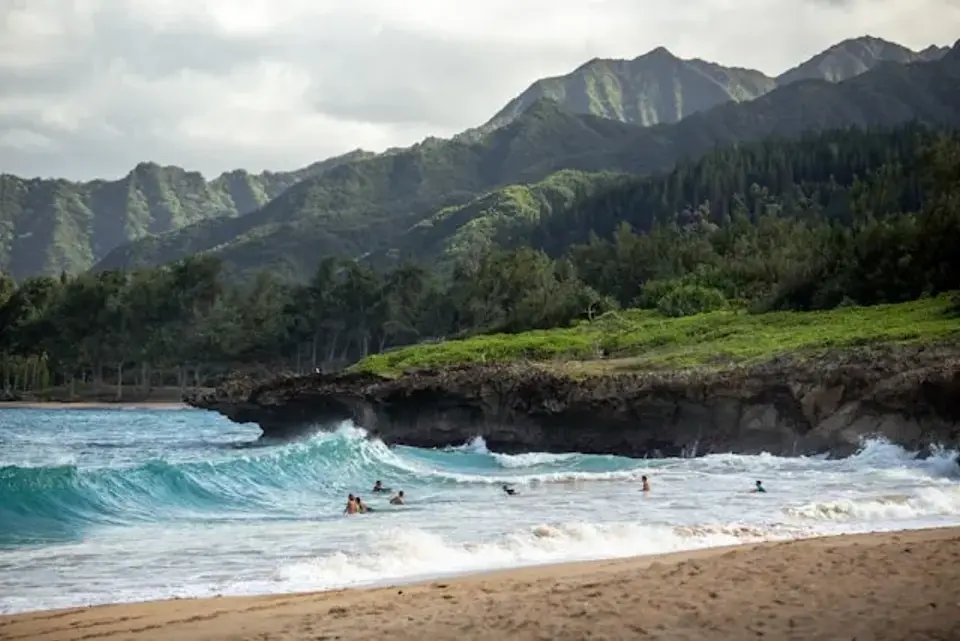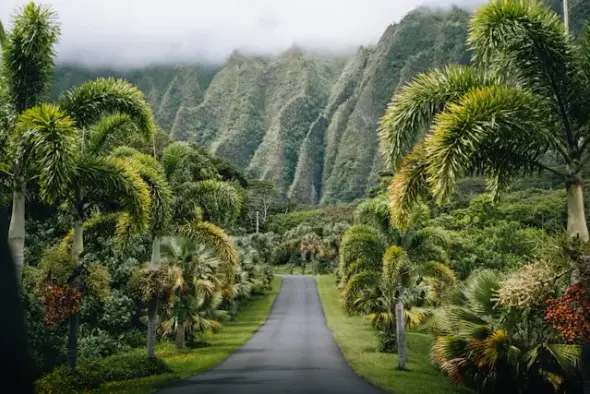Airbnb Rules in Hawaii: A Complete Guide for STR Hosts and Property Owners

Hawaii’s short-term vacation rental laws are widely considered restrictive, with each island enforcing unique zoning regulations. The state’s decentralized regulatory framework means short-term rental property owners must navigate county-specific licensing requirements, with Maui County, for example, phasing out thousands of transient vacation rentals.
This guide addresses the legal requirements to operate short-term rentals in Hawaii legally, covering compliance obligations from zoning verification through ongoing tax remittance.
What this guide covers:
This comprehensive resource details Hawaii’s island-specific zoning laws, transient accommodations tax obligations, county licensing requirements, enforcement mechanisms and step-by-step registration processes. This guide excludes general Airbnb hosting tips, marketing strategies or property management advice unrelated to legal compliance.
Who this is for:
This guide is designed for current and prospective Hawaii short-term rental hosts, property owners considering vacation rentals, real estate investors evaluating the short-term rental market and property managers overseeing short-term rentals across the Hawaiian islands. Whether you’re launching your first vacation rental business or ensuring ongoing short-term rental compliance across multiple islands, you’ll find specific regulatory guidance and actionable requirements.
Why this matters:
Hawaii’s 2024 state legislation (SB 2919) granted counties expanded authority to limit vacation rentals entirely, with Maui County phasing out approximately 7,000 units in apartment zoned areas to long-term housing. Local communities continue pressuring lawmakers to address the housing crisis exacerbated by investor-owned transient short-term rentals converting residential stock, making enforcement increasingly aggressive across all islands.
What you’ll learn:
Hawaii’s island-specific zoning laws and property eligibility requirements
TAT and GET tax registration processes through the Hawaii Department of Taxation
County licensing requirements across Oahu, Maui, Big Island and Kauai
Penalty structures and enforcement mechanisms for violations
Understanding Hawaii’s short-term rental legal framework
Hawaii, for state tax purposes, considers short-term rentals as transient accommodations rented for fewer than 180 consecutive days under Chapter 237D of the Transient Accommodations Tax Law. Airbnb hosts in Hawaii must obtain a Certificate of Registration from the Hawaii Department of Taxation. This applies uniformly across all counties, though enforcement mechanisms and licensing requirements vary significantly by island. For example, Honolulu defines and regulates short-term rentals as stays of less than 30 consecutive days.
The regulatory framework balances tourism industry revenue, which generated over $20 billion in 2023, with housing affordability concerns that have intensified post-disaster. Senate Bill 2919 (2024) empowered counties to prioritize long-term housing while addressing economic impacts, fundamentally reshaping the short-term rental industry landscape.
Zoning laws and property eligibility
Resort zoned areas, designated hotel districts and specific multi family commercial zones allow legal short-term rentals across the Hawaiian islands. The distinction between permitted and prohibited zones represents the foundational compliance requirement before any licensing application.
Residential areas generally prohibit short-term vacation rentals unless properties hold grandfathered permits from before specific cutoff dates established by each county. Local zoning laws also differentiate between hosted rentals, where the owner lives on-site and provides guest accommodation for portions of the dwelling unit, and unhosted rentals operating as fully vacant properties.
This explicit connection to Hawaii’s legal framework explains how zoning determines property eligibility for all vacation rental operations. Property owners must verify zoning status through county planning departments before purchasing or listing any property for short-term rental accommodations.
County vs state jurisdiction
State government provides general definitions through Hawaii tax laws and the transient accommodations tax framework, while counties enforce specific licensing, zoning ordinances and operational requirements independently. This creates a patchwork system where compliance demands island-by-island verification.
The new law passed in 2024 grants counties enhanced authority to restrict vacation rentals for housing protection, with some islands pursuing aggressive phase-out strategies while others implement comprehensive registration systems. This jurisdictional split means that Airbnb hosts operating on multiple islands face distinct compliance obligations for each property.
Understanding this foundational framework establishes the context for navigating each island’s specific implementation of short-term rental laws and operating legal vacation rentals.

Island-specific regulations and compliance requirements
Each Hawaiian island maintains distinct regulatory approaches reflecting local housing pressures, tourism dependencies and community priorities. The following breakdown covers current requirements, with several islands implementing significant changes through 2026.
Oahu: Honolulu County regulations
The City and County of Honolulu defines short-term rentals vacation rentals or lodgings that provide guest accommodation for less than 30 consecutive days. They are only permitted to operate in resort-zoned areas and certain specific apartment-zoned areas, unless they have been grandfathered in and have a valid Nonconforming Use Certificate (NUC) which must be renewed annually. Honolulu STRs can be owner-occupied (bed & breakfasts renting up to two rooms) or whole home rentals (transient vacation units). All short-term rentals must be registered unless holding a valid NUC.
Ordinance 22-6 requires real property sellers to disclose short-term rental status via a May 2025 revised form. Properties in standard single family residential zones cannot operate legally as short-term vacation rentals regardless of owner occupancy status, with enforcement intensified through neighbor complaints and DPP permitting oversight.
The Honolulu City Council voted to approve a bill that extended the minimum booking period for a property outside of a resort area to 90 days, but this has been blocked by a judge.
Maui: Transient vacation rental permits
Maui County exemplifies aggressive phase-out strategies, with Mayor Richard Bissen signing legislation in December 2025 to phase out approximately 7,000 short-term rentals in apartment zoned areas to long-term housing in a multi-year effort. This new law seeks to address the housing crisis highlighted by the Lahaina wildfires.
Short-term vacation rentals survive only in designated hotel or resort zones, requiring valid TAT and GET numbers visibly displayed in all listings. West Maui and other fire-affected areas face particularly strict enforcement, with illegal operations subject to escalating fines and immediate shutdowns. Unlike Hawaii County’s registration model, Maui’s zoning-centric approach eliminates most non-resort transient vacation units entirely.
Big Island: Bill 47 and mandatory registration
Bill 47, passed in 2025 and set to go into effect on July 1, 2026, mandates annual registration for all hosted short-term rentals, defined as a transient vacation rental (TVR), hosting consecutive stays of 180 days or fewer on Hawaii Island. This closes loopholes for previously unregulated hosted short-term rentals while unhosted short-term rentals were already required to obtain a permit.
Hawaii County STR registration fees are $250 for hosted rentals and $500 for unhosted properties, with both categories requiring property address, bedroom count, tax map key, proof of property tax payments and health/safety compliance documentation. Registrations expire 90 days after any ownership change, requiring immediate re-registration, and the local government can revoke registrations for violations and issues fines of up to $10,000 for failing to register.
When registering, the County expects short-term rental hosts to already have General Excise Tax (GET) and Transient Accommodations Tax (TAT) numbers. Hosting platforms like Airbnb and Vrbo will also be required by the new law to report short-term rental listings to the county and ensure their Hawaii County registration and TAT numbers are displayed in the listing.
Kauai: Visitor destination areas only
Kauai maintains tight zoning restrictions permitting short-term vacation rentals only in designated visitor destination areas including Princeville, Kapa’a condos and Poipu Road oceanfront locations. Grandfathered properties pre-March 2008 continue to maintain legal status. Short-term rentals operating outside visitor destination areas (VDAs) are required to obtain a permit and are only allowed to host stays of 180 consecutive days or longer.
Understanding island-specific regulations establishes the context for navigating universal licensing requirements across all Hawaiian islands.
Island/County | Where STRs are allowed | Definition used for enforcement | Permit / registration |
Oʻahu (Honolulu) | Resort + select apartment zones + grandfathered | <30 days | NUC / registration |
Maui | Mostly resort/hotel zones + specific grandfathering | <180 days | TVR / zoning-based |
Hawaiʻi (Big Island) | County rules + TVR categories | <180 days | Annual registration (effective 7/1/2026) |
Kauaʻi | VDAs + grandfathered | <180 days | VDA/NCU permits |
Licensing and registration requirements
All short-term rental operators across Hawaii must complete state tax registration before pursuing county-specific permits, creating a two-tier compliance system requiring separate applications and documentation.
Step-by-step: State tax license registration
When to use this: Before any county license applications and prior to listing any property for transient accommodations.
Obtain TAT License: Register for a Transient Accommodations Tax license through the Hawaii Department of Taxation online portal, receiving your Tax ID number for all rental activities.
Register for GET License: Apply for General Excise Tax registration using the same tax identification number, covering all business transactions.
Display Tax ID numbers: Include TAT and GET numbers prominently on all vacation rental listings as required by Hawaii law.
Submit annual returns: File required tax returns even during periods of no rental activity to maintain active license status.
County licenses
Property owners should verify current fees through county planning departments, as Hawaii County’s new registration system and other islands’ evolving regulations may adjust requirements. Hosted rentals consistently face lower registration fee structures than unhosted short-term rental properties across all jurisdictions.
Securing proper licensing establishes the foundation for understanding comprehensive tax obligations affecting the vacation rental business.
Tax obligations and financial requirements
Short-term rental owners face multiple state and county tax obligations requiring separate registrations, with no platform tax collection permitted in Hawaii. Airbnb hosts remain solely responsible for remitting all short-term rental taxes directly to government agencies.
Hawaii tax structure
The Transient Accommodations Tax (TAT) applies at a new rate of 11% as of January 1, 2026 to all rentals under 180 days statewide, collected and remitted monthly or quarterly through the Hawaii Department of Taxation portal. This represents the primary tax obligation for all vacation rental operations.
General excise tax rates vary by county.
County property tax classifications for vacation rentals carry significantly higher rates than residential properties, with some jurisdictions reclassifying transient vacation rental properties automatically upon registration. Property owners should verify classification status through county tax assessors to avoid penalties and understand true operating costs.
Insurance and liability requirements
Minimum liability coverage recommendations vary by county and property type. Insurance documentation may be required during county license applications, with coverage verification needed before permit activation. Property managers handling multiple properties should maintain separate policies for each dwelling unit to ensure comprehensive protection.
Understanding tax and insurance obligations prepares hosts for addressing common compliance challenges facing Hawaii vacation rental operators.
Common challenges and solutions
Successful short-term rental compliance in Hawaii requires proactive management of zoning verification, multi-island tax obligations and documentation requirements that commonly trigger enforcement actions.
Challenge 1: Zoning verification and property eligibility
Solution:
Contact county planning departments directly to verify zoning status before purchasing or listing properties. Request written confirmation of zoning designation and any applicable nonconforming use certificate status.
Buying land or properties without verified zoning eligibility represents the most costly compliance error, as many residential areas and agricultural zones prohibit short-term rentals entirely regardless of other compliance measures. A significant portion of enforcement actions stem from properties operating in prohibited zones.
Challenge 2: Multi-island tax compliance
Solution:
Maintain separate accounting systems for each island’s tax requirements and use professional tax preparation services familiar with Hawaii tax laws and STR-specific obligations.
Unlike states where platforms auto-collect taxes, Hawaii’s prohibition on marketplace tax collection heightens host liability substantially. Audit risks demand meticulous records of all TAT and GET remittances, with penalties for underreporting including interest, fines and potential license revocation.
Challenge 3: Grandfathered status documentation
Solution:
Gather historical permits, tax records and listing documentation to prove continuous vacation rental operation before relevant cutoff dates established by each county.
Grandfathered properties under nonconforming use certificate (NUC)status must demonstrate uninterrupted rental activities to maintain eligibility. Gaps in documentation or operation history may result in lost grandfathered status, eliminating legal vacation rental operations permanently for that property.
Understanding common challenges prepares hosts for the serious consequences of enforcement actions and the complex regulations governing violations.

Enforcement actions and penalties
Hawaii counties employ dedicated enforcement teams monitoring short-term rental booking platforms and responding to community complaints about illegal vacation rentals, with post-wildfire recovery accelerating restrictions across all islands.
Violation types and fines
Operating without proper licenses can result in immediate cease-and-desist orders alongside with daily fines depending on county and violation severity. Hawaii County’s new enforcement framework, effective July 1, 2026, establishes escalating penalties specifically targeting unregistered short-term rental operators.
Tax violations carry additional penalties through the Hawaii Department of Taxation including interest accrual and aggressive collection actions. False advertising or misrepresented zoning status triggers enhanced enforcement.
Registration revocation occurs following repeated violations, with revoked registrations creating permanent bars to future licensing in some counties. The 90-day re-registration requirement after ownership changes creates particular vulnerability during property transfers.
Understanding enforcement consequences emphasizes the critical importance of maintaining strict compliance to operate legally in Hawaii’s evolving short-term rental regulatory environment.
Navigating Hawaii's Short-Term Rental Laws
Hawaii’s island-specific regulations create a complex but navigable framework for legally compliant vacation rental operations, with each county maintaining distinct zoning, licensing and enforcement approaches. The 2024 state legislation granting counties expanded authority signals continued tightening while new proposed legislation signal further changes in the future. For example, House Bill 820 proposes a steep increase in transient accommodations taxes for short-term rentals in Hawaii.
To get started:
Verify your property’s zoning eligibility through the relevant county planning department before any other compliance steps
Obtain TAT and GET licenses through the Hawaii Department of Taxation online portal
Research and apply for appropriate county licenses and permits specific to your island
Establish tax compliance systems for ongoing TAT and GET obligations, maintaining meticulous records
Secure specialized vacation rental insurance covering all transient accommodations activities
Additional Resources
The Hawaii Department of Taxation online portal provides current TAT and GET license applications along with filing deadlines and payment procedures. County planning department websites maintain current zoning maps, permit applications and fee schedules for each island’s specific requirements.
Professional vacation rental management companies specializing in Hawaii compliance can assist with multi-island operations, while local tax preparers familiar with Hawaii Airbnb short-term rental laws ensure proper reporting across all jurisdictional obligations.
FAQs
What is the main difference between state and county laws for short-term rentals in Hawaii?
The state of Hawaii defines a short-term rental as a "transient accommodation" rented for less than 180 consecutive days and manages the statewide Transient Accommodations Tax (TAT) and General Excise Tax (GET). However, individual counties are responsible for setting and enforcing their own specific rules regarding zoning, licensing and operational requirements. This means that compliance rules for things like permits and where you can legally operate vary significantly from island to island.
Do I need a special tax license to operate a vacation rental in Hawaii?
Yes, all short-term rental operators in Hawaii must register with the Hawaii Department of Taxation to obtain both a Transient Accommodations Tax (TAT) license and a General Excise Tax (GET) license. This is a mandatory first step before you can apply for any county-specific permits. These tax ID numbers must also be displayed on all property listings.
Can I operate a short-term rental anywhere in Hawaii?
No, short-term rentals are generally restricted to specific zones, such as resort-zoned areas and designated hotel districts. Operating in a standard residential zone is typically prohibited unless the property has a "grandfathered" Nonconforming Use Certificate (NUC) from before zoning rules were established. It is crucial to verify your property's zoning status with the local county planning department before listing it.
Are the rules the same on every Hawaiian island?
No, the regulations are very different for each county. For example, Maui County is actively phasing out thousands of short-term rentals in apartment-zoned areas to increase long-term housing. In contrast, Hawaii County (the Big Island) has implemented a mandatory annual registration system for all short-term rentals..
What are the consequences of operating an illegal short-term rental?
Counties have dedicated enforcement teams that monitor booking platforms and investigate complaints. Penalties for violations can be severe, including immediate cease-and-desist orders, daily fines and potential revocation of your registration. Additionally, tax violations can lead to interest, further fines and aggressive collection actions from the state.
Do platforms like Airbnb or Vrbo handle tax collection for me in Hawaii?
No, Hawaii does not permit booking platforms including Airbnb and Vrbo to collect or remit taxes on behalf of hosts. As a property owner, you are solely responsible for collecting and remitting all required taxes directly to the appropriate government agencies.
Ready to find out how Hostaway can transform your business?
